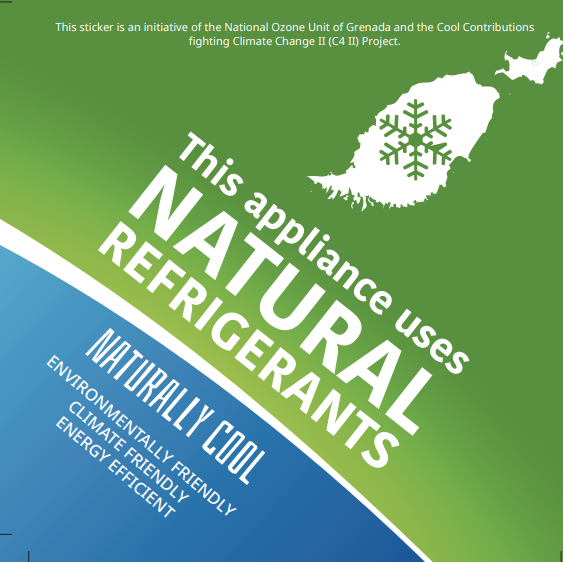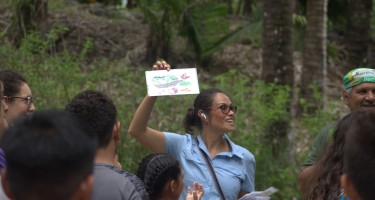Webinar: Leveraging the Cooling Sector for Ambitious NDCs: Policy Instruments and Holistic Mitigation Approaches in Grenada
NDC4 webinar introduces policy instruments for addressing refrigerant and energy-related emissions and shares best practices from Grenada in leveraging the cooling sector for ambitious climate action.

© Adobe Stock
As part of the global project Cool Contributions fighting Climate Change II (C4 II), the NDC4 webinar series has been initiated to address a critical aspect of climate action: integrating the cooling sector into Nationally Determined Contributions (NDCs). The sessions serve as a platform to disseminate tools, methods and best practice examples to incorporate cooling strategies into the national climate commitments under the Paris Agreement, highlighting the pivotal role of the cooling sector in achieving these targets.
In the most recent webinar “Leveraging the Cooling Sector for Ambitious NDCs: Policy Instruments and Holistic Mitigation Approaches in Grenada”, held on April 12, 2024, participants were immersed into Grenada’s strategic efforts and cross-cutting approaches to address greenhouse gas emissions from the refrigeration and air conditioning (RAC) sector effectively. Notably, cooling accounts for one third of Grenada’s total greenhouse gas emissions and more than 60% of the national electricity consumption.
During the webinar, Irene Papst, consultant at HEAT GmbH, provided a comprehensive overview of policy instruments addressing refrigerant and energy-related emissions. Subsequently, Leslie Smith, National Ozone Officer in the Ministry of Climate Resilience, the Environment and Renewable Energy gave insights into Grenada’s ambitious policy instruments and legislation in the RAC sector, including the country’s pioneering Montreal Protocol Substances Bill enacted in 2024. This legislation restricts the import or export of residential refrigeration appliances using a refrigerant with a global warming potential (GWP) of 150 or greater, and air conditioning units with a GWP of 750 or greater.
Furthermore, Grenada has introduced fiscal incentives to incentivize the adoption of RAC appliances operating with natural refrigerants or powered by renewable energy. Appliances that use natural refrigerants, that meet the minimum energy performance standard or that are powered by renewable energy sources are entitled to 100% concessions on all customs, duties and taxes. These comprehensive initiatives underscore Grenada’s commitment to be a global leader in Green Cooling technologies and contribute to global efforts to combat climate change.
The NDC4 webinar series is organised by GIZ Proklima as part of the global project Cool Contributions fighting Climate Change (C4 II). C4 II is supported by the German Federal Ministry for the Environment, Nature Conservation, Nuclear Safety and Consumer Protection (BMUV) as part of the International Climate Initiative (IKI).

The natural refrigerant label is one of many initiatives in Grenada to promote the use of natural refrigerants in refrigeration and air conditioning appliances. © GIZ Proklima
- Country: Grenada
- Project:
- Contact:
Maja Schmauser


